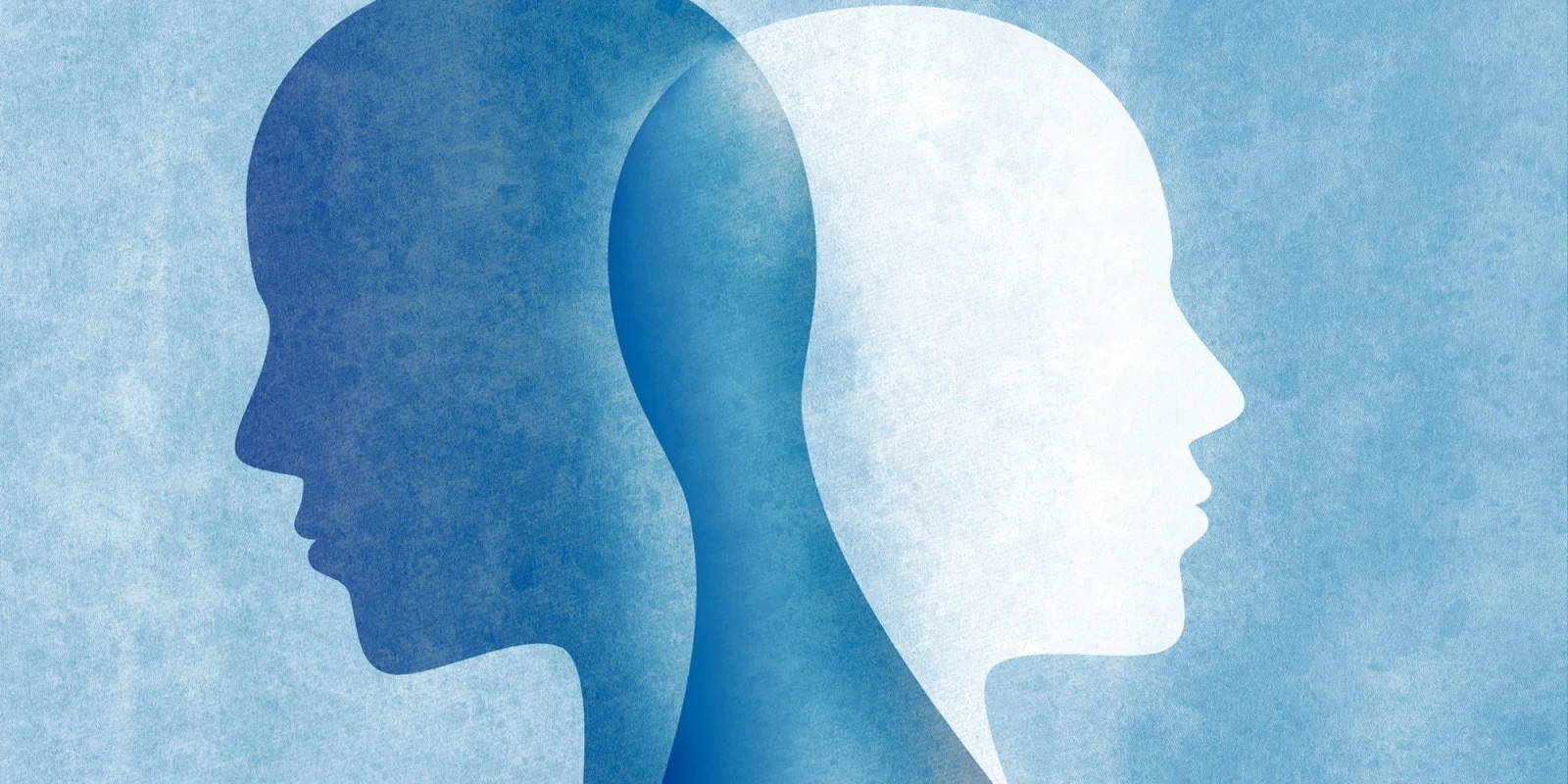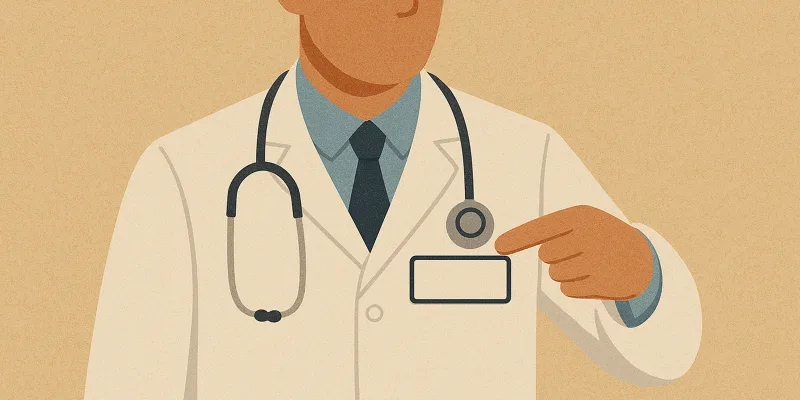
Overheard in the Neurologist’s office, circa 2019:
“Well, Mrs. Jones, we’ve run every conceivable test. We cannot definitively rule out Lyme disease, PANDAS, or mitochondrial disease, but the odds are low. Physically, you’re healthy. I know that doesn’t ease your misery, your pain, your inability to function in a meaningful way, but that’s really the good news here. What I can do for you is refer you to a colleague of mine who specializes in these sorts of cases. Dr. Smith is a Psychiatrist – Not that I think you’re crazy. But frankly, there is nothing more I or my medical colleagues can do for you.”
Overheard in the Neurologist-cum-Psychiatrist’s office, circa 2031:
“Well, Mrs. Jones, we’ve imaged your brain every which way; we’ve tested each individual muscle and nerve fiber in your body; we’ve mapped your genes; we’ve run panels of chromosomal, genomic, and allergy tests. We’ve performed EEG’s, PET scans, and fMRI studies. Your brain mapping is consistent with nonspecific neurologic and psychiatric changes. Your genetic profile indicates some nonspecific foci of interest. These may, or may not, be significant. We’ve empirically tried you on broad-spectrum antibiotics. We’ve tried IVIG. We’ve tried both IV and oral steroids. We’ve tried prophylactic anti-inflammatories. And although your neuropsychiatric exam continues to yield transient deficits, the pattern elicited is inconsistent with algorithmic pathology. Honestly, Mrs. Jones, there is now nothing anyone can do for you.”
There is yet another dangerous assault happening on Psychiatry, this time coming from inside the house — the Psychiatrist-cum-quasi-Neurologist lobby of the American Psychiatric Association itself. While it is true that no one has yet written a book titled "Proust Was a Psychiatrist," "Brain on Fire" was a bestseller, self-serving one woman’s pathologic need to "speak out" by framing her bout with rare illness as a profound drama between the evil clutches of Psychiatry and the warm bosom of neurology.
But lest we forget, modern Psychiatry was born of Neurology’s inability to manage "madness" effectively, and there is little clamor from Neurology to re-expand its scope to encompass Psychiatry. The first specialty hospitals at all were in fact facilities dedicated to the treatment of "madness," and the arguably oldest Neurology journal extant, Oxford’s “Brain,” began life as the Reports of the West Riding Asylum. We might just be witness to an historical parallel in our own time, if and when the National Institute for Mental Health (NIMH), with its "innovative" research domain criteria for classifying mental illness as "brain" illness, splinters off and creates its own new field of psycho-neuriatry.
What is spectacularly overlooked, however, is the fact that Psychiatry – keeping in mind that a rose by any other name – dominated all of medicine until the nineteenth century. Cures, after all – an inconvenient fact of medical history – have only been around for a little more than a century. Medicine prior to that, other than the entirely distinct field of barbery/surgery, was the art of managing distress and providing supportive care. Good physicians were expert at the course of disease.
Still, there is no arguing the point that if psychiatric disorders become "brain" disorders, then by definition Neurology will have won the day. To some extent this has already occurred, as most Neurologists do not hesitate to treat most psychiatric disorders (or at least give it a try).
This is obviously a one-way street, as few Psychiatrists are comfortable treating primary neurologic disorders. As for the "fuzzy boundaries" wherein Psychiatry shares the burden with Neurology – dementias, deliria and other encephalopathies, autism and intellectual disabilities, substance intoxications and withdrawals – whether these qualify as states of "madness" is part of the problem.
The interesting, if overlooked, point in this regard is that patients – people – seem to hear it differently when a Psychiatrist diagnoses delirium or dementia versus a Neurologist. It is not a profound statement that people fear Psychiatry. And people fear Psychiatry because people fear "madness." Madness bears the legacy still of the asylum, of the Gothic literature and popular culture of the Enlightenment and the Romantics.
For centuries, most of what we would consider “neurologic” conditions were lumped into "madness," notably the epilepsies. And madness, to a point, was tolerated. It was really the Enlightenment, the so-called "Age of Reason" – in which, for the first time, science began to eclipse religion – that brought about the profound fear of madness in Western culture, of the loss of reason.
Fear of contamination accompanied this fear of madness, and confinement became the dominant treatment, a means of identifying the "sick" from the "not sick." In this context, the Psychiatrists were the first to jump on board the specialty bandwagon, the first physicians to acquire a "special power": the power to confine, whether for the purposes of coercive treatment or not, whether the treatment was truly ‘moral’ or not.
Psychiatrists still wield this power, more dangerously so, according to some, because they avoid the scientific "medical gaze" that characterizes the rest of medicine (initially by sitting behind the patient, as is customary in psychoanalysis, now by their perceived empathy, the "mm-hm’s" and head nods), thereby colluding insidiously with the patient.
We in the twenty-first century, and especially so in the post-Enlightenment West, have maintained this well-wrought fear of losing the ability to act as our own agents. We fear losing our dignity above all. Especially as the early promise of science has failed us in this regard.
Still – to quote the Enlightenment poet Alexander Pope – "hope springs eternal," and a Neurologist represents hope. A Neurologist represents the possibility that "I am not mad," that there is a "medical" reason that I am no longer capable of acting on my own behalf. A Neurologist represents "medicine" as (artificially) divorced from the environment. The questions are less penetrating, less discomforting. Your wife’s affairs in the face of your impotence are of little importance, as are the facts that you are a poorly employed single parent with two children with autism living in shelters. The Neurologist as a human being may care, but as a scientist he/she does not, and it is precisely that medical ambivalence that many people, when faced with the possibility of mental illness, find to be in fact a paternalistic/maternalistic relief.
The Psychiatrist, say, as a referral from the Neurologist, represents hopelessness. It means the rest of the scientific world has given up; it means worst fears are confirmed. "I am crazy," "I am mad," "I no longer have control." This extends even to treatment. An antipsychotic medication prescribed by a Neurologist is somehow an easier pill to swallow for most people than when prescribed by a Psychiatrist.
So, what to do with Psychiatry?
Nothing.
"Science," "neuro" or otherwise, as the abject failure to date of the obscenely well-funded NIMH project has thus far demonstrated, will undoubtedly continue to fail us with regard to mental illness. The line between brain and mind will hold steady, as – despite the dictates of sanctioned agencies – patients will not allow that line to be transgressed. Most patients will not concede their "will," their "desires," their "hopes", their "dreams" to neuroscience.
And besides, we will always need a place for "hopeless cases."
Elliott Martin, MD, is a board-certified adult and child psychiatrist at Newton-Wellesley Hospital, as well as the Director of Consultation and Emergency Psychiatric Services at Newton-Wellesley Hospital, and Assistant Clinical Professor of Psychiatry at Tufts University School of Medicine. He is a 2018–19 Doximity Author.







